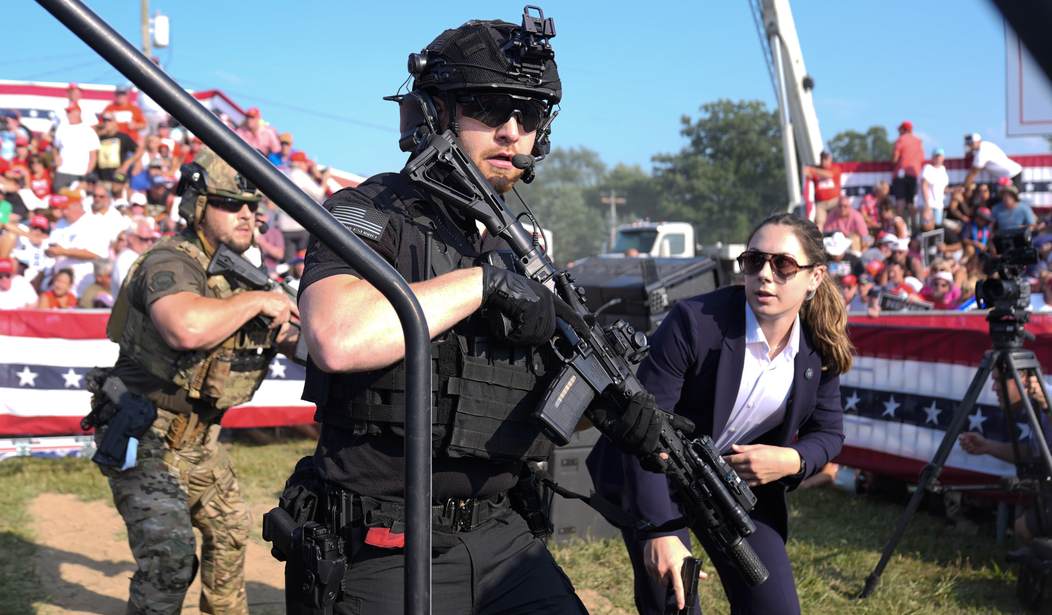A classified Secret Service report on the attempted assassination of Donald Trump reveals more fundamental security failures than previously known and why the Trump campaign was correct in questioning the level of his Secret Service protection before the Butler rally and for years prior to the event.
Congress received a closed-door briefing on the report, known as the "Mission Assurance investigation," on Thursday. At that time, several members commented on the security failures of the Secret Service that day.
"I think the American people are going to be shocked, astonished, and appalled by what we will report to them about the failures by the Secret Service in this assassination attempt on the former president," Connecticut Democratic Senator Richard Blumenthal told Fox News. "But I think they also ought to be appalled and astonished by the failure of the Department of Homeland Security to be more forthcoming, to be as candid and frank, as it should be to them in terms of providing information."
“There is a lot that we don’t know yet, and I think there is some frustration that was voiced, I think with Acting Director Rowe,” Sen. Ron Johnson (Wisc) told reporters. “He’s making the commitment to provide more information.”
Two months after the assassination, DHS and the Secret Service are still dragging their feet in providing Congress with the information they've asked for.
A redacted version of the report may be released next week.
One of the questions that has yet to be fully answered is how the shooter was able to clamber atop the AGR building and have a clear shot less than 130 yards from the event stage.
The officials, speaking on the condition of anonymity to describe an internal probe, said the investigation found that agents from Secret Service headquarters and the Pittsburgh field office had an alarmingly slipshod strategy to block a potential shooter from having a clear sight of the Republican nominee for president at the July 13 rally in Butler, Pa.
Agents securing the event had discussed possibly using heavy equipment and flags to create a visual impediment between the Agr International building and the rally stage, the officials said. But supervisors who arrived at Butler the day of the rally found cranes, trucks and flags were not deployed in a way that blocked the line of sight from that roof.
So the supervisors arrive in Butler on the day of the outdoor rally and find that their grand plan to block the vision of a potential sniper on top of the AGR building has gone to hell.
What prevented those supervisors from rushing to position the "cranes, trucks, and flags" correctly?
“The Secret Service cannot operate under the paradox of ‘zero fail mission’ while also making our special agents and uniformed division officers execute a very critical national security mission by doing more with less,” Secret Service acting director Ron Rowe told Congress.
Other revelations in the Mission Assurance Investigation include:
- A Secret Service radio room where agents were supposed to monitor potential threats and get reports of any problems had no way to receive real-time alerts from local police surveilling the crowd and outer perimeter.
- Local police alerts of a suspicious man at the rally before Trump’s arrival were not broadcast widely on Secret Service radio. Instead, local counter snipers were instructed to text a photo of the man — who was behaving oddly near the AGR building and carrying a range finder — to just one Secret Service official, limiting the agency’s awareness of a man who turned out to be the gunman.
- Secret Service agents never heard local police radio traffic about trying to track down and then spotting that man after Trump began speaking.
I feel certain that complacency will be one of the major points made when trying explain the horrific lapses in security. The agents just didn't believe that an assassination attempt was possible. Or if they did, they didn't take the possibility as seriously as they should have.
The Secret Service may have to be broken down and re-constituted under different management. Certainly, it should be removed from the Department of Homeland Security. Whether it should be returned to the Treasury Department or become an independent agency should be debated by Congress.










Join the conversation as a VIP Member